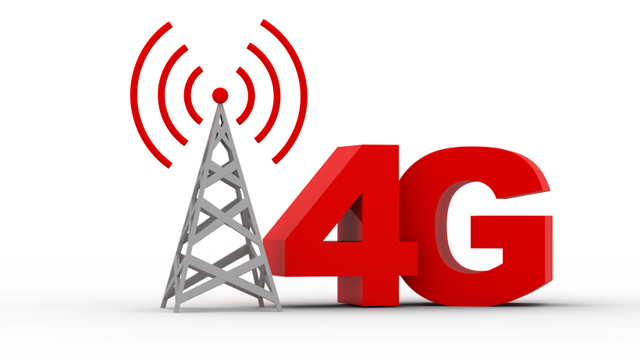Telstra, Optus and TPG all buy extra 4G spectrum
Bigger, faster 4G networks on the way

The Digital Dividend auction has just wrapped up, and the ACMA has just announced which companies were successful in bidding for chunks of the old analogue TV spectrum.
With the closure of the analogue TV system later this year, the ACMA held secret auctions of the spectrum the analogue TV network used. As expected, the spectrum was snapped up by Telcos, and will likely be used to expand 4G network capacity.
Telstra, Optus and ISP TPG all managed to win a part of the spectrum during the auction. Vodafone, which already had 20MHz of bandwidth for its 4G network, opted not to take part in the auction process.
Telstra takes the lion's share
Telstra spent $1.3 billion on the auction, securing 40Mhz of bandwidth (or two lots of 20Mhz) in the 700Mhz band, as well as two lots of 40MHz (for a total of 80MHz) in the 2.5GHz spectrum band.
Optus took home two lots of 10MHz (20Mhz total) in the 700Mhz band, and two lots of 20MHz (40Mhz total) in the 2.5GHz band as part of its bidding. Optus spent just over $649 million on its chunk of spectrum.
Perhaps most interestingly though was the purchase of two lots of 10MHz (20MHz total) of spectrum in the 2.5GHz band by TPG internet. The ISP spent $13.5 million on the network.
Given TPG currently licenses Optus' network as an MVNO, the purchase of its own spectrum gives TPG an opportunity to expand out from its traditional ISP roots into a full-blown telco in its own right.
Sign up for breaking news, reviews, opinion, top tech deals, and more.
Although the government netted almost $2 billion from the auction, two lots of 15MHz in the 700MHz spectrum didn't sell. What will happen with this leftover network is unclear, although given the limited nature of wireless spectrum, expect it to be snapped up sooner than later.
Waiting for 2015
The purchase of the digital network won't result in a massive jump in 4G network coverage overnight. According to the ACMA, the new licenses in the 700Mhz band won't become available until 2015.
For the winners of the 2.5GHz band, licenses will generally commence at the start of October 2014, with the exception of Metro Perth and regional WA areas, which begin in February 2016.
The official word
Needless to say, the Telcos are ecstatic about the potential all that extra bandwidth provides.
In a statement, Telstra CEO David Thodey explained the benefit for the nation's largest telco:
""The spectrum will be used to enhance our network to help support extraordinary demand growth for mobile services and data. With the 700 MHz and 2.5 GHz spectrum we will be able to deliver faster speeds, more capacity and expansive wide area coverage of 4G LTE technology on our Next G network.
"The low-frequency nature of 700MHz means the mobile signal can travel relatively longer distances, which is ideal for improving the services we can offer to customers in rural and regional areas. It also means better in-building coverage in metro and suburban areas.
"Together with ongoing investment in our wireless network, which will total $1.2 billion in 2012-13 Financial Year, and the application of next generation LTE-Advanced 4G technology that we announced earlier this year, the additional spectrum will help ensure we continue to deliver Australia's leading mobile network for our customers."
Optus was similarly optimistic, with CEO Kevin Russell claiming the 2.5GHz spectrum will play nice with the 2.3GHz spectrum the Telco already licenses:
"The spectrum Optus has acquired in the 700 MHz band will provide stronger 4G coverage across both metropolitan and regional Australia, allowing us to expand our 4G services to more customers than ever before.
"The additional spectrum purchased in the 2.5 GHz band, when combined with our already substantial holdings in 2.3 GHz, will enable Optus to provide unparalleled network capacity for 4G data services to our metropolitan customers."
TPG is keeping specifics a little closer to its chest, offering the following statement:
"TPG believes that the 2.5GHz spectrum is a valuable asset which, with developing technologies, will bring TPG the opportunity to offer innovative and value-adding products to its customers, particularly in the increasingly important wireless broadband market."